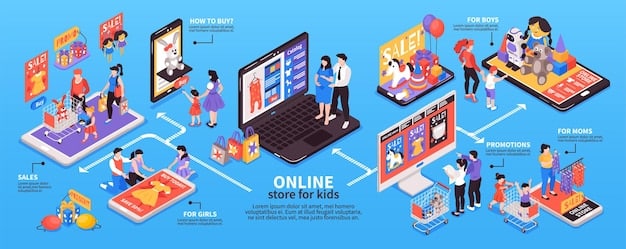Unlock $1000+ Online: Monetize Your Existing Skills Now

This guide provides a comprehensive framework for individuals to discover, develop, and deploy their existing skills into profitable online ventures, empowering them to generate significant additional income by leveraging their unique expertise and passion to unlock uncultivated revenue streams.
Are you looking to augment your income significantly by leveraging what you already know? This guide, Unlock $1000+ in Untapped Revenue: A Guide to Monetizing Your Existing Skills Online, delves into practical, actionable strategies for transforming your current expertise into a substantial online income stream, moving beyond theoretical concepts to real-world application.
Identifying Your Monetizable Skills
The first step in unlocking new income streams is to deeply understand what you already possess. Many individuals overlook the inherent value in their day-to-day knowledge, hobbies, and professional experiences. It’s not always about acquiring new complex skills; often, the most successful online ventures stem from a refined understanding of one’s existing capabilities and how they can address a specific market need.
Consider not just your formal qualifications, but also your informal expertise. Have you consistently helped friends with tech issues? Are you an exceptional baker, or perhaps a natural organizer? These seemingly simple abilities can be the foundation of a thriving online business. The key is to shift your perspective from viewing them as routine actions to recognizing them as valuable assets that others might pay for.
Uncovering Hidden Talents and Passion Points
To truly identify your monetizable skills, a structured introspection is invaluable. This is not merely a brainstorming session, but a deep dive into your personal and professional history to pinpoint areas where you excel, enjoy, and have naturally developed expertise. Think about tasks you effortlessly perform that others struggle with, or problems you instinctively solve.
- Reflect on your experiences: What have you learned from past jobs, volunteer work, or even personal challenges?
- Analyze your hobbies: Do you have a pastime that requires a specific skill set, like photography, coding, or crafting?
- Seek external validation: What do friends, family, or colleagues often ask for your help with? Their requests can highlight your perceived strengths.
Beyond natural talent, genuine passion can fuel long-term success. Monetizing a skill you genuinely enjoy will make the journey more sustainable and rewarding. When you’re passionate about what you do, the quality of your work often improves, and you’re more likely to adapt and innovate in the face of challenges. This intrinsic motivation is a powerful differentiator in the competitive online landscape.
Mapping Skills to Market Needs
Once you have a list of potential skills, the next critical phase is to determine if there’s a viable market for them. A skill, no matter how refined, won’t generate income if no one is willing to pay for it. Market research is paramount here. This doesn’t require a large budget or complex tools; simple observation and online exploration can yield significant insights.
Start by observing common problems or desires expressed by people in online communities, forums, or social media. Look for recurring questions, pain points, or needs that your skill set could potentially address. For instance, if you’re skilled in graphic design, are small businesses struggling with their branding? If you’re a skilled writer, are aspiring authors seeking editing services?
Another approach is to research existing online services or products related to your skills. What services are already being offered? What are their prices? Are there gaps in their offerings that you could fill, or ways you could provide a superior service? This competitive analysis helps you position yourself uniquely in the market and identify potential niches where demand outstrips supply.
The intersection of your innate abilities and a clear market demand is where true monetization potential lies. This crucial step prevents you from investing time and effort into an online venture that lacks a sustainable audience, ensuring your efforts are directed towards genuinely profitable opportunities.
Choosing Your Online Monetization Path
With your monetizable skills identified, the strategic decision now shifts to selecting the most suitable online channel to deliver your value. The digital landscape offers a myriad of platforms and models, each with distinct advantages and requirements. Understanding these options is crucial for aligning your skills with the right audience and income generation mechanism.
This phase involves more than just picking a platform; it’s about defining your business model. Will you offer direct services, create products, teach, or advise? Each path demands different levels of time commitment, technical expertise, and upfront investment. A careful evaluation here can streamline your efforts and maximize your chances of success.
Service-Based Offerings: Freelancing and Consulting
One of the most straightforward ways to monetize existing skills is through service-based models. Freelancing involves offering specific project-based work, while consulting typically implies providing expert advice and strategies. Both leverage your direct expertise to solve client problems, making them excellent starting points for those with established professional skills or specialized knowledge.
- Freelancing Platforms: Sites like Upwork, Fiverr, or specialized job boards offer structured environments to find clients. You create a profile, showcase your portfolio, and bid on projects.
- Direct Client Acquisition: Networking, referral marketing, and personal branding (e.g., through a professional website or LinkedIn) can lead to higher-paying private clients.
- Consulting Engagements: Position yourself as an expert in your field. This often involves one-on-one sessions, strategy development, or temporary advisory roles for businesses or individuals.
The beauty of service-based models is the direct correlation between your time/expertise and your income. You control your rates and your client list, allowing for flexibility and scalability as your reputation grows. It’s a hands-on approach where your direct input translates into immediate value for your clients, making it ideal for those who enjoy active problem-solving and client interaction.
Product-Based Monetization: Digital and Physical Goods
Beyond services, your skills can manifest as tangible products, either digital or physical. This approach offers a different scalability advantage: once created, a product can be sold repeatedly without significant additional effort for each sale, providing a more passive income stream over time. The initial effort shifts from continuous client work to upfront creation and marketing.
Digital products, such as e-books, online courses, templates, or software, leverage your knowledge or creative skills. For instance, a graphic designer can sell logo templates, or a fitness expert can create a detailed workout plan e-book. These products have low overheads and can be delivered instantly, making them highly profitable once the initial creation costs are covered.
Physical products, though requiring more logistical planning (manufacturing, shipping, inventory), can also be a powerful way to monetize craft or design skills. Think handmade jewelry, custom apparel, or specialized tools. Platforms like Etsy or setting up your own e-commerce store provide the infrastructure for selling these items. The choice between digital and physical depends on your skill set, target audience, and appetite for operational complexities.

Educational and Advisory Models: Courses, Workshops, and Coaching
If your skill set involves teaching, guiding, or mentoring, then educational and advisory models might be your ideal path. This is particularly effective for those with deep expertise that can be structured into learnable content or actionable advice. The demand for specialized knowledge and practical guidance continues to grow, presenting a significant opportunity.
Online courses, hosted on platforms like Teachable, Thinkific, or Udemy, allow you to package your knowledge into structured lessons, videos, and exercises. These can be pre-recorded for self-paced learning or delivered live in a cohort format. Workshops, often shorter and more intensive, focus on practical application and skill development within a specific timeframe.
Coaching, on the other hand, is highly individualized. It involves one-on-one or small-group interactions where you guide individuals towards achieving specific goals using your expertise. This model is often premium-priced due to its personalized nature and direct impact. Whether it’s business coaching, life coaching, or skill-specific coaching (e.g., writing coaching, coding coaching), the value lies in your ability to empower others to succeed.
These models not only allow for direct monetization but also establish you as an authority in your niche, opening doors for further opportunities like speaking engagements, book deals, or larger consulting contracts. The investment in creating high-quality educational content can yield long-term dividends, building both income and credibility.
Building Your Online Presence and Brand
Once you’ve identified your monetizable skills and chosen your preferred monetization path, establishing a strong online presence is paramount. In the vast digital ecosystem, simply existing is not enough; you need to be visible, trustworthy, and compelling. Your online presence serves as your virtual storefront, portfolio, and credibility badge, directly influencing your ability to attract clients and customers.
Building a successful online brand is more than just having a website; it’s about crafting a consistent and authentic narrative that resonates with your target audience. It involves thoughtful creation of content, strategic use of platforms, and continuous engagement with your community. This foundational work differentiates you from competitors and establishes you as an authority in your chosen niche.
Crafting Your Professional Online Identity
Your online identity is the sum total of how you present yourself across all digital channels. This includes your professional website, social media profiles, and any online portfolios. Consistency in messaging, visual branding, and communication style is vital to convey professionalism and trustworthiness. Think of it as your digital reputation, which you meticulously build and nurture.
- Personal Website/Portfolio: This is your central hub, showcasing your services, products, testimonials, and expertise. Ensure it’s professional, easy to navigate, and clearly communicates your value proposition.
- Optimized Social Media Profiles: Choose platforms where your target audience spends their time (e.g., LinkedIn for B2B, Instagram for visual arts). Optimize your profiles with clear bios, relevant keywords, and engaging content.
- Consistent Branding: Use a consistent logo, color palette, and tone of voice across all your online properties. This reinforces your brand identity and makes you easily recognizable.
A well-crafted online identity reassures potential clients that you are legitimate, capable, and committed to your craft. It builds a foundation of trust before any direct interaction occurs, making it easier to convert casual visitors into paying customers. This initial impression is often the most critical in a crowded online marketplace.
Content Marketing for Authority and Lead Generation
Content marketing is the strategic creation and distribution of valuable, relevant, and consistent content to attract and retain a clearly defined audience—and, ultimately, to drive profitable customer action. For skill monetization, it positions you as a thought leader and problem-solver, drawing in your ideal clients or customers naturally.
This can take many forms: blog posts, videos, podcasts, infographics, or even detailed guides. The content should directly address the pain points, questions, or aspirations of your target audience, demonstrating how your skills provide solutions. For example, if you offer financial consulting, blog posts on “5 Common Budgeting Mistakes” or “Investing for Beginners” would be highly relevant.
Effective content marketing also significantly boosts your search engine visibility. By consistently publishing high-quality, keyword-rich content, you increase the chances of your website ranking higher in Google searches, driving organic traffic to your offerings. This inbound marketing strategy reduces the need for expensive advertising and builds a loyal audience over time.
Beyond attracting leads, content helps educate your audience, preparing them for your services or products. It builds a relationship based on value and trust, making the sales process smoother and fostering long-term client relationships. Ultimately, content marketing is an investment in your brand’s authority and a powerful generator of qualified leads.
Marketing and Outreach Strategies
Once your online presence is established, the next crucial step is to actively market your skills and reach your target audience. Even the most valuable skills and perfectly crafted online presence won’t generate revenue if no one knows about them. Marketing and outreach are about intentionally connecting with those who need your expertise and converting them into paying clients or customers.
This phase involves strategic promotion, targeted communication, and building authentic relationships within your industry or niche. It’s less about hard selling and more about demonstrating value, solving problems, and being visible where your potential audience congregates. A multi-faceted approach often yields the best results, combining various channels for maximum reach.
Leveraging Social Media and Online Communities
Social media platforms and online communities offer unparalleled opportunities for targeted outreach. Unlike traditional advertising, these channels allow for direct engagement, relationship building, and organic dissemination of your expertise. The key is to be strategic about where you spend your time and how you interact.
- Active Participation: Join relevant Facebook groups, LinkedIn communities, Reddit forums, or industry-specific platforms. Contribute value by answering questions, sharing insights, and participating in discussions, rather than just self-promoting.
- Showcasing Expertise: Use platforms like Instagram or Pinterest for visual skills (e.g., photography, design), YouTube for tutorials or demonstrations, and LinkedIn for professional insights and networking.
- Strategic Sharing: Share your content (blog posts, videos) on these platforms, but always ensure it’s framed as helpful information rather than a direct sales pitch.
The goal is to become a recognized, helpful voice within your niche. When people consistently see you offering valuable advice or solving problems, they will naturally be drawn to learn more about your services or products. This organic growth, built on trust and credibility, is far more powerful and sustainable than forced advertising.
Networking and Collaborations
The power of professional relationships cannot be overstated in the online world. Networking isn’t just for in-person events; it extends to digital interactions, partnerships, and collaborations. Connecting with peers, complementary businesses, and industry influencers can open doors to new opportunities, referrals, and broader exposure.
Seek out opportunities to collaborate with others who serve a similar audience but offer non-competing services. This could involve co-hosting a webinar, creating a joint digital product, cross-promoting each other’s services, or guest posting on each other’s blogs. These collaborations expose you to new audiences who are already engaged and interested in related topics, significantly expanding your reach.
Attending virtual conferences, webinars, and online industry events is another way to network. Engage with speakers and other attendees, ask thoughtful questions, and follow up with valuable connections. Building a robust network not only brings direct business but also provides a support system for learning, problem-solving, and staying updated on industry trends. Referrals from trusted sources are often the highest quality leads.
Paid Advertising and SEO Fundamentals
While organic strategies are vital, paid advertising can significantly accelerate your visibility and lead generation, especially if you have a clear understanding of your target audience and conversion funnels. Platforms like Google Ads, Facebook Ads, and LinkedIn Ads allow for highly precise targeting, ensuring your marketing budget reaches the most relevant potential customers.
Paid advertising can be particularly effective for quick launches, promoting specific offers, or scaling up successful organic efforts. It allows you to precisely define demographics, interests, and behaviors, ensuring your message is seen by those most likely to convert. However, it requires careful budgeting, continuous testing, and optimization to ensure a positive return on investment.
Alongside paid efforts, a foundational understanding of Search Engine Optimization (SEO) is critical for long-term organic growth. SEO involves optimizing your website and content to rank higher in search engine results. This includes using relevant keywords, creating high-quality, valuable content, ensuring your website is technically sound, and building authoritative backlinks. While SEO takes time, the consistent flow of organic traffic it generates is a powerful, sustainable asset for monetizing your skills online. A balanced approach combining strategic paid advertising with robust SEO practices provides both immediate impact and enduring growth.
Scalability and Long-Term Growth
Successfully monetizing your existing skills online isn’t just about generating initial income; it’s about building a sustainable and potentially scalable revenue stream. What begins as a side hustle can evolve into a full-fledged business, but this transition requires strategic thinking about efficiency, delegation, and diversification. Without a plan for growth, you risk plateauing or becoming overwhelmed.
Scalability means designing your services or products in a way that allows you to serve more clients or sell more products without a proportional increase in your time or effort. Long-term growth involves continuously adapting to market changes, refining your offerings, and exploring new opportunities to expand your reach and impact.
Automating Processes and Outsourcing Tasks
As your online venture grows, manual, repetitive tasks can quickly consume your time and hinder productivity. Automation and outsourcing are critical tools for freeing up your time to focus on higher-value activities. Identify tasks that are routine, time-consuming, or not central to your core expertise, and look for ways to streamline them.
- Automation Tools: Utilize CRM software for client management, email marketing platforms for communication, scheduling tools for appointments, and accounting software for finances.
- Outsourcing: Consider hiring virtual assistants for administrative tasks, freelance designers for graphics, copywriters for content, or social media managers for your online presence. Platforms like Upwork, Fiverr, or specialized agencies can connect you with talent.
- Systematization: Document your processes. Clear, step-by-step guides make it easier to train others or automate workflows, ensuring consistency and efficiency.
By delegating or automating tasks that don’t directly require your unique skill set, you create more capacity for client work, product development, or strategic planning, moving from being a skilled individual to a strategic business owner. This shift is fundamental for significant income growth.
Diversifying Income Streams
Reliance on a single income source, even a profitable one, carries inherent risks. Market changes, client fluctuations, or shifts in demand can impact your revenue. Diversifying your income streams provides stability and opens up new avenues for growth, leveraging your existing expertise in multiple ways.
If you started with freelancing, consider creating a digital product (e.g., an e-book or online course) based on your expertise. If you’re selling a digital product, perhaps offer premium one-on-one coaching for those who need more personalized guidance. Affiliating with complementary products or services that align with your niche can also add a passive revenue stream.
The goal is to create a portfolio of offerings that caters to different segments of your audience at varying price points. This not only mitigates risk but also deepens your relationship with your audience, providing multiple entry points into your ecosystem. Diversification is about maximizing the value of your existing skills by packaging and delivering them in innovative ways.
Continuous Learning and Adaptation
The online landscape is dynamic, with constant changes in technology, market trends, and consumer behavior. For long-term growth and sustained revenue, continuous learning and adaptation are not optional; they are essential. Remaining stagnant will inevitably lead to obsolescence.
Stay informed about advancements in your industry, new monetization platforms, and emerging marketing strategies. This could involve reading industry publications, participating in online forums, attending webinars, or investing in advanced courses. Critically evaluate your performance, collect feedback from clients, and be willing to pivot if a strategy isn’t yielding the desired results.
Embrace experimentation. Try new content formats, test different pricing models, or explore untapped niches related to your skills. The ability to learn from both successes and failures, refine your approach, and proactively adapt to changing conditions is the hallmark of a resilient and growing online business. Your existing skills are a powerful foundation, but their long-term monetization depends on your commitment to evolving with the digital world.
Overcoming Common Challenges
While the prospect of monetizing existing skills online is exciting, the journey is rarely without its hurdles. From navigating fierce competition to managing time effectively and overcoming self-doubt, anticipating and addressing these common challenges is crucial for sustained success. A proactive approach to problem-solving can transform potential roadblocks into opportunities for growth and resilience.
Many aspiring online entrepreneurs encounter similar obstacles. Understanding these challenges isn’t about fostering negativity, but rather equipping yourself with strategies to navigate them. This section will explore some of the most frequently faced difficulties and offer practical advice for moving forward.
Dealing with Competition and Saturation
The online marketplace can appear crowded, especially in popular niches. It’s easy to feel overwhelmed by the sheer number of individuals offering similar services or products. However, perceived saturation often masks opportunities for differentiation and niche specialization. The key is not to avoid competition, but to understand and outmaneuver it.
- Niche Down: Instead of offering a broad skill, specialize in a very specific sub-niche. For example, rather than “web design,” focus on “web design for holistic wellness coaches using Squarespace.”
- Unique Value Proposition (UVP): Clearly articulate what makes your offering different and better. Is it your unique experience, a specific methodology, superior customer service, or a particular specialization?
- Build Relationships: Focus on building strong, personal relationships with clients. This creates loyalty that competitors often struggle to replicate.
Remember, your unique combination of skills, experiences, and personality is something no one else can replicate. Leverage this individuality to craft a brand and an offering that stands out. Competition can also be a valuable source of inspiration, showing you what’s working and identifying gaps in the market that you can fill.
Time Management and Maintaining Balance
For most, monetizing skills online begins as a side hustle alongside existing commitments. This makes time management a significant challenge. Juggling a day job, family responsibilities, and a nascent online venture requires discipline, strategic planning, and a clear understanding of priorities.
Effective time management is not about working more hours, but about working smarter. Identify your peak productivity times and dedicate them to high-impact tasks for your online business. Utilize productivity tools, set firm boundaries between work and personal life, and learn to say no to non-essential commitments.
It’s also crucial to maintain a healthy work-life balance to prevent burnout. Regularly schedule breaks, incorporate physical activity, and ensure you’re getting adequate rest. Sustainable growth is built on a foundation of personal well-being, not just relentless effort. Building a team or automating tasks, as discussed earlier, directly contributes to better time management by offloading responsibilities.
Overcoming Imposter Syndrome and Self-Doubt
Even highly skilled individuals often grapple with imposter syndrome—the feeling that you’re not good enough, don’t know enough, or that your success is undeserved. This self-doubt can be a significant barrier to putting yourself out there, charging your worth, and pursuing ambitious goals. It’s a common experience, but one that needs to be actively managed.
Combat imposter syndrome by focusing on your proven track record. Keep a record of your successes, positive client testimonials, and the value you’ve delivered. Remind yourself that everyone starts somewhere, and continuous learning is part of the journey. Seek support from mentors or a community of peers who understand the challenges of online entrepreneurship.
Furthermore, understand that perfection is the enemy of progress. It’s better to launch and iterate than to wait for an ideal that may never materialize. Your value often lies not in being the “best” in every conceivable way, but in providing a unique solution that meets a specific need. Authenticity and persistence are far more important than flawless execution from day one. Celebrate small wins, learn from setbacks, and keep moving forward with confidence in your unique abilities.
Measuring Success and Refining Your Approach
Monetizing your skills online is an ongoing journey, not a destination. To ensure sustained growth and maximize your revenue, it’s essential to regularly measure your performance, analyze data, and refine your strategies. This data-driven approach moves you beyond guesswork, allowing you to make informed decisions that optimize your efforts and improve your results consistently.
Without clear metrics, it’s impossible to truly understand what’s working, what isn’t, and where opportunities for improvement lie. This section outlines key areas to monitor and how to use the insights gained to iterate and enhance your online monetization efforts.
Key Performance Indicators (KPIs) for Online Skills
Defining clear Key Performance Indicators (KPIs) is fundamental. These are quantifiable metrics that reflect the success of your online venture. Your KPIs will vary based on your chosen monetization path, but generally fall into categories like audience engagement, lead generation, conversions, and revenue.
- Website Traffic: How many visitors are coming to your site? Where are they coming from (search, social, referrals)? Which pages are most popular?
- Engagement Metrics: For content (blogs, videos), track bounce rate, time on page/video watch time, comments, and shares. For social media, monitor likes, shares, comments, and follower growth.
- Conversion Rate: What percentage of visitors or leads convert into paying clients or customers? This is crucial for understanding the effectiveness of your sales funnels.
- Client Retention/Repeat Business: For service-based models, how many clients return for more work? For products, how many customers make repeat purchases?
- Revenue and Profit Margins: Track your gross revenue, expenses, and ultimately, your net profit. This is the ultimate measure of financial success.
Regularly reviewing these KPIs provides an objective overview of your business health. Tools like Google Analytics, social media insights, and platform-specific dashboards offer the data you need to make informed decisions.
Gathering Feedback and Iterating
While quantitative data tells you what is happening, qualitative feedback tells you why it’s happening and how your clients or customers perceive your value. Actively seeking and utilizing feedback is indispensable for refining your offerings and improving client satisfaction.
Gather feedback through client surveys, direct conversations, testimonials, and reviews. Pay attention to common questions, recurring issues, or suggestions for improvement. This feedback is a golden opportunity to fine-tune your services, products, or course content to better meet market needs and exceed expectations.
The process of iteration means making small, continuous improvements based on the data and feedback you receive. Perhaps a change in your website’s call-to-action increases conversions, or a modification to your course structure improves student completion rates. This agile approach ensures your offerings remain relevant and highly valuable in an evolving market.
Setting New Goals and Expanding Your Reach
Once you have a clear understanding of your current performance and have implemented initial refinements, it’s time to set new, ambitious goals. These goals should be SMART: Specific, Measurable, Achievable, Relevant, and Time-bound. Examples include “increase monthly revenue by 20% within six months” or “attract 10 new high-value clients this quarter.”
As you achieve your initial goals, consider expanding your reach. This could involve exploring new niches within your expertise, developing advanced versions of your products or services, targeting international markets, or creating new content formats to appeal to a broader audience. Scaling operations through automation or team expansion will be crucial at this stage.
The journey of monetizing your skills online is a dynamic process of discovery, creation, delivery, and continuous optimization. By diligently measuring success, incorporating feedback, and setting ambitious goals, you can ensure your existing skills not only unlock significant untapped revenue today but also pave the way for sustained prosperity in the future.
| Key Point | Brief Description |
|---|---|
| 🔍 Skill Identification | Discovering inherent talents and matching them to viable market needs. |
| 💡 Monetization Paths | Choosing between services (freelancing, consulting), products (digital, physical), or education (courses, coaching). |
| 🌐 Online Presence | Building a strong brand involving websites, social media, and content marketing for authority. |
| 📈 Scaling & Growth | Strategies for automation, outsourcing, and diversifying income streams for long-term sustainability. |
Frequently Asked Questions (FAQ)
▼
The timeline varies widely based on effort, market demand, and your chosen monetization path. For service-based roles like freelancing, you could start earning within weeks by securing initial clients. Product-based models or courses might take longer for creation and marketing, but offer greater scalability once established. Consistent effort and strategic marketing accelerate results.
▼
Not necessarily. While some technical understanding helps, many user-friendly platforms (e.g., website builders, e-commerce platforms, course hosts) require minimal coding. Focus on your core skill; technical tasks can be learned, outsourced, or managed with intuitive tools. The increasing accessibility of technology democratizes online entrepreneurship for all skill sets.
▼
Finding clients involves a multi-pronged approach. Leverage freelancing platforms initially, then focus on building your online presence through a professional website, social media, and content marketing. Network within online communities, collaborate with complementary businesses, and consider targeted paid advertising to reach your ideal audience effectively.
▼
Many valuable skills are often overlooked because they feel routine to you. Think about what others consistently ask for your help with, or what comes naturally to you but challenges others. Even common skills can be monetized by niching down, offering a unique approach, or providing exceptional service or value within a specific context. Your unique perspective is your strength.
▼
Personal branding is extremely important. In a crowded online space, a strong personal brand helps you stand out, establish credibility, and build trust. It communicates your unique value proposition, expertise, and personality to your target audience, making it easier for them to connect with you and choose your services or products over competitors. It’s your digital fingerprint.
Conclusion
Unlocking significant revenue through your existing skills online is not merely a hypothetical ambition but a tangible reality for those willing to commit to the process. By systematically identifying your valuable expertise, strategically choosing your monetization channels, building a compelling online presence, and engaging in deliberate marketing, you establish a robust framework for financial growth. While challenges are inevitable, a proactive approach to problem-solving, coupled with continuous learning and adaptation, empowers you to navigate the digital landscape successfully. The journey of transforming your knowledge into a sustainable income stream is a testament to your resourcefulness and a powerful path to financial independence and personal fulfillment.





